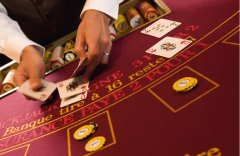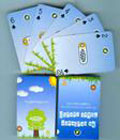工作与游戏有何关联
“欢乐时光”的游戏规则看起来相当简单:你是一个酒保。你的挑战是通过那些已经喝得烂醉的客人脸上的表情来分辨他们想喝什么酒。然后在规定的时间之内,你要调好这些酒,为他们呈上吧台,再洗净用过的酒杯。若是成绩出色,你将获得一个诱人的奖励:一份现实中的工作。
游戏“欢乐时光”将于5月28日发布,它是以色列企业家Guy Halfteck创立的Knack公司所发布的众多视频游戏中的一款。除此之外,还有寿司版的“欢乐时光”、“至理名言”(一款文字游戏)和“气球桥”(用气球和水来灭火)。游戏在设计时运用了最新的科学研究结果,目的是为了检测出哪些员工可能具有雇主所需要的认知能力。从对模型的认知到对情商的测试,游戏检验出一个人的喜好以及对变化环境的适应能力。
Knack公司结合了三大流行趋势:游戏,对数据的大量运用以及对科学见解的应用。据Knack团队成员、麻省理工学院“聚智中心”的Chris Chabris说,与传统招聘工具相比,游戏具有很大的优点,比如游戏结果不会像人格测试那样受到狡猾测试者的欺瞒。他说,还有很多品质都能够从Knack的游戏里快速体现出来,作弊是很难的。Chabris先生还说,最大的两个挑战就是,要确保游戏足够好玩,同时使应聘者在无心测量认知能力的情况下注意着新的测试数据。耶鲁一个正在进行的学生试验把游戏成绩与学习成绩挂钩。Halfteck先生说,哪怕只是十分钟的游戏,也能产生可以预测人行为的数据。
一些公司看到了这些游戏的潜力。壳牌石油的“游戏改变者”小组专门为石油巨头寻找新的分裂技术,他们准备测试看Knack能不能帮助他们确定谁是创新能力较强的人。贝恩咨询公司正准备进行一个项目:让现有的员工们玩游戏,从中研究哪些技能对一场成功的咨询是有帮助的。(一再陈述显而易见的事情,这种技能应该不在此列。)“如果有人能够大大改善我们挑选精英的能力,那可是意义重大,”贝恩公司的招聘专员Mark Howorth说。 即使没什么帮助,至少这个过程也蛮有趣的。
译文:
THE rules of Happy Hour are deceptively simple. You are a bartender. Your challenge is to tell what sort of drink each of a swelling mob of customers wants by the expressions on their faces. Then you must make and serve each drink and wash each used glass, all within a short period of time. Play this video game well and you might win a tantalising prize: a job in the real world.
Happy Hour, which will be unveiled to the public on May 28th, is one of several video games developed by Knack, a start-up founded by Guy Halfteck, an Israeli entrepreneur. The games include a version of Happy Hour in which sushi replaces booze, Words of Wisdom (a word game) and Balloon Brigade (which involves putting out fires with balloons and water)。 They are designed to test cognitive skills that employers might want, drawing on some of the latest scientific research. These range from pattern recognition to emotional intelligence, risk appetite and adaptability to changing situations.
A pilot now under way with students at Yale combines the results of games with academic grades. As little as ten minutes of play can yield enough data to predict performance, says Mr Halfteck.
Knack combines three fashionable trends: gaming, the use of massive amounts of data and the application of behavioural insights from science. According to Chris Chabris of the Centre for Collective Intelligence at MIT, a member of the Knack team, games have huge advantages over traditional recruitment tools, such as personality tests, which can easily be outwitted by an astute candidate. Many more things can be tested quickly and performance can't be faked on Knack's games, he says. The two biggest challenges, according to Mr Chabris, are ensuring the games are fun to play and convincing recruiters, who typically make no attempt to measure cognitive skills, to pay attention to these new data.
Some firms seem to see the potential. The GameChanger unit of Shell, which seeks out new disruptive technologies for the oil giant, is about to test if Knack can help it identify innovators. Bain & Company, a consultancy, is to run a pilot: it will start by getting current staff to play the games, to see which skills make for a successful consultant. (The ability to charge a lot for stating the obvious is presumably not one of them.) “If someone can materially improve our ability to select the best talent, that is worth a lot to us,” says Mark Howorth, a recruiter at Bain. And if not, at least the process will be fun.
- 上一篇:玩游戏上瘾者大脑或存在生理差异
- 下一篇:电子游戏机在中国举步维艰的原因
相关推荐
随机专题



 您现在的位置:
您现在的位置: 
 新手怎么看足球盘口技巧
新手怎么看足球盘口技巧 百家乐这样玩才是决胜关键!
百家乐这样玩才是决胜关键! 荆州方言斗地主玩法攻略
荆州方言斗地主玩法攻略 玩转麻将游戏绝技之牵制敌手、动静相宜
玩转麻将游戏绝技之牵制敌手、动静相宜


